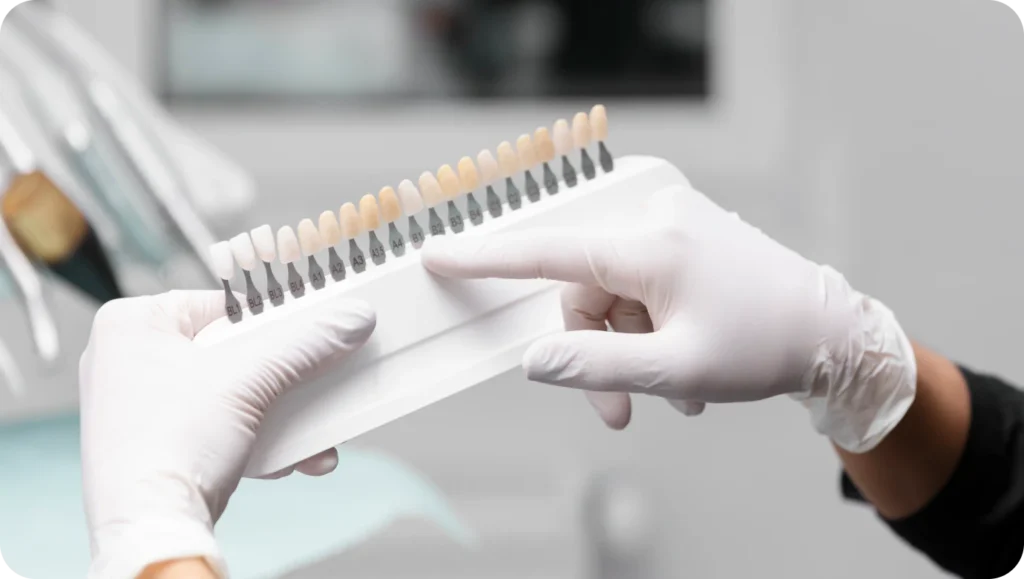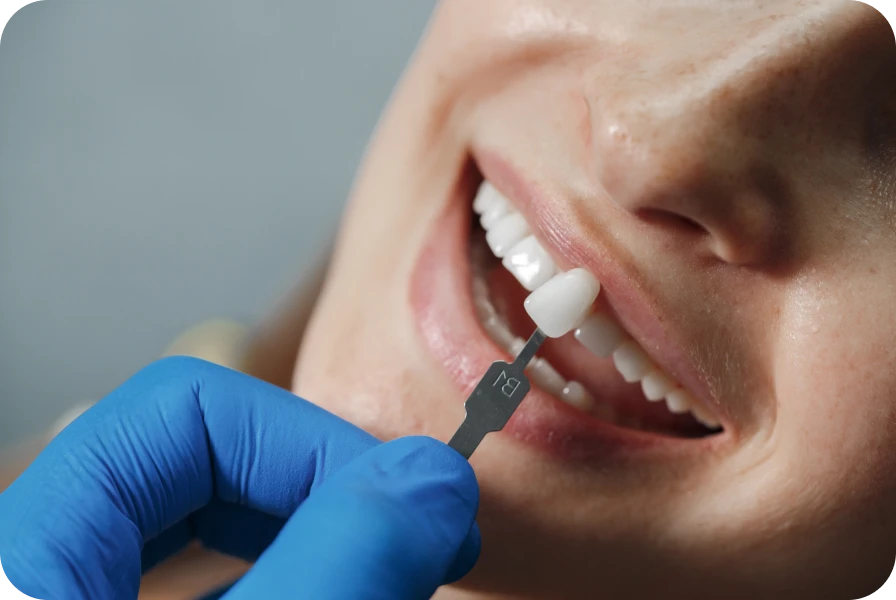Veneers
If you dream of a perfect smile, dental veneers may be an option to consider. They can transform the appearance of teeth by making them whiter, more aligned, and ideally shaped. Before proceeding, it is essential to fully understand how they work and what steps are involved.

Advantages of Dental Veneers
Dental veneers offer numerous benefits. They can correct various aesthetic issues such as stained, chipped, or slightly misaligned teeth. With veneers, you can achieve a harmonious smile without undergoing lengthy and complex orthodontic treatments. Dental veneers can also restore radiance to a dull or yellowed smile.
Choosing the Type of Dental Veneers
Several types of dental veneers are available, and it is important to choose those that best suit your needs. Ceramic veneers are often preferred for their durability and natural appearance. However, composite veneers can be a more affordable alternative and require less tooth preparation. Before making your choice, discuss the available options with your dentist.
The Dental Veneer Placement Procedure
The dental veneer placement procedure involves several steps. First, a consultation with your dentist is necessary to assess your needs and determine if veneers are the best solution. Next, a slight preparation of the tooth surface is performed to accommodate the veneers. After taking an impression of your teeth, the dentist creates custom veneers that will then be bonded to your teeth using a special adhesive.
Once veneers are placed, it is important to maintain them properly to ensure their longevity. Regular brushing and flossing are essential to prevent cavities and preserve the appearance of your veneers.

Maintenance and Durability of Dental Veneers
Although veneers are durable, they are not indestructible. It is important to avoid chewing hard objects such as ice or pens to prevent cracks. By taking care of your veneers, you can extend their lifespan by several years.
Precautions before Choosing Dental Veneers
Before deciding, it is crucial to consider certain aspects. Veneers are not reversible, as they require the removal of a thin layer of tooth enamel. Furthermore, although durable, veneers may require replacement after several years. Ensure you fully understand these aspects before making your decision.
Alternatives to Dental Veneers
If you are hesitant about choosing veneers, be aware that other solutions exist to enhance the aesthetics of your smile. Teeth whitening may be an option if your teeth are primarily stained. Dental crowns can also be considered for more damaged or fragile teeth. Before making a choice, discuss with your dentist to find the most suitable solution for your needs.
Costs Associated with Dental Veneers
Dental veneers can represent a significant investment. The cost varies depending on the type of veneers chosen and the number of teeth to be treated. However, it is important to consider this investment as a long-term contribution to your self-confidence and well-being. Ask your dentist for a precise quote and inquire about available financing options.
After Dental Veneer Placement

After placement, you will need to follow certain recommendations to ensure proper integration of the veneers. It is possible to experience slight tooth sensitivity for a few days. To reduce this sensation, use toothpaste for sensitive teeth and avoid overly hot or cold foods. If sensitivity persists, consult your dentist.
Dental veneers are an effective solution for enhancing the aesthetics of your smile. They can correct various imperfections and achieve whiter, more aligned teeth. However, it is important to thoroughly research the procedure, costs, and maintenance before making your decision.
By following your dentist’s recommendations and taking care of your veneers, you can enjoy a radiant smile for many years.
Always keep in mind that good oral hygiene and regular dental visits are essential to maintain your veneers in perfect condition.
